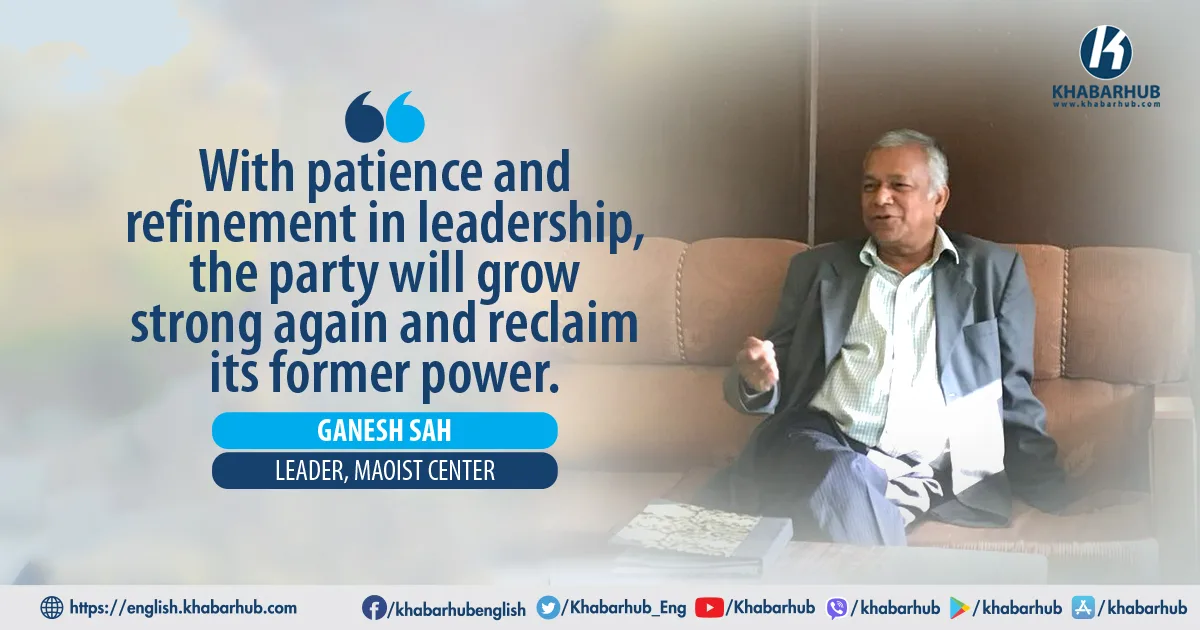KATHMANDU: The CPN-Maoist Center, which shared power with the CPN-UML led by KP Sharma Oli, was pushed out of power on July 12.
Despite forming an alliance with the Nepali Congress in the 2079 BS election, Pushpa Kamal Dahal Prachanda ascended to the Prime Ministership through Oli’s initiative.
However, the partnership between Oli and Dahal ended within three months.
Following their renewed collaboration, their government lasted less than four months.
Dahal, who initially rose to power with Oli’s support, has now returned from Baluwatar to Khumaltar due to political shifts.
As Oli allied with the Nepali Congress, Prachanda faced an emergency exit from power.
This recent turn of events has dealt a significant blow to Prachanda, who relied on both UML and Nepali Congress to navigate the complexities of parliamentary politics.
With the UML and Congress sharing power, Prachanda’s path back to leadership is uncertain, and the Maoists find themselves in the opposition.
What lies ahead for the Maoists? How will they strategize moving forward? After spending much of the post-peace process era in power, how will the Maoists redefine their identity in opposition?
Khabarhub held a conversation with Maoist Center leader Ganesh Sah on the Maoist Center’s future. Excerpts:
What will be the Maoist Center’s next strategy?
Yes, we have been in power for a long time. It’s important to reflect on what role the Communist Party played while in government and whether we truly fulfilled that role. The functioning of the party during this time is also under review.
Before the 2079 BS election, we formed a five-party alliance with the Nepali Congress, which fought the election collectively.
At that time, there was a majority in the coalition, and it was agreed that Prachanda would serve as Prime Minister first, followed by Sher Bahadur Deuba.
NC President Deuba was expected to lead the government into the 2084 BS election.
However, after the election, the Nepali Congress did not honor the agreements made.
When they withdrew from the pact, we had to form a government with the UML, only to later shift back to the Nepali Congress.
Essentially, there has been ongoing competition between UML and Nepali Congress, often leading to strategic moves to undermine each other.
Now, the situation has changed, with KP Sharma Oli as Prime Minister.
While the constitution encourages coalition governments, it seems our leaders have struggled to fully understand and implement this.
As a result, the Prime Minister has had to seek a vote of confidence six times in just 19 months.
We hope this does not continue even under the new Oli-led government.
Moving forward, the Maoist Center will continue to strive to fulfill the priorities and commitments we established during our tenure, even while in opposition.
Concerning the arithmetic in the Parliament and despite being in power multiple times, should maoist Center not assess whether it missed opportunities to implement its agenda?
Despite being in power multiple times, we must reflect on whether we have missed opportunities to implement our agenda.
During our 19 months in government, we worked to maintain good governance by addressing widespread corruption in the country.
We encountered various scandals, but our efforts focused on tackling land embezzlement and gold smuggling, particularly in the Lalita Niwas case.
Our aim has been to promote good governance, and we believe KP Oli should take greater action in this regard.
For inclusive justice—supporting Dalits and marginalized communities—and for addressing the country’s challenges, good governance is essential.
Our party leadership also shares some responsibility for the negative perceptions surrounding inclusiveness and federalism, as inclusiveness has often been linked to favoritism and nepotism.
Currently, the country seems to be moving toward a system reliant on middlemen.
Maoist Chairman is also operating within a network of middlemen. The term “intermediary” can often be misused; is your party free from this in politics?
In English, an “agent” typically represents a company with authority.
In contrast, a middleman often remains hidden, manipulating others for personal gain.
This issue isn’t just limited to politics; it can be seen in everyday situations, such as needing a middleman to sell land.
The challenges of intermediaries and corruption in our country will need to be addressed through a robust legal system, drawing on our party’s experience.
After adopting parliamentary politics, we must understand its meaning and spirit.
However, it often feels like one faction must undermine another to progress.
Some have questioned why we needed to govern as a third party, arguing that this was not the mandate given by the people.
What transpired was the result of an alliance led by the Prime Minister, where the leadership should have belonged to the entire coalition. Unfortunately, that leadership has fractured.
Is there any moral ground left to question good governance and corruption while in the opposition?
During the investigation, it was noted that after reaching a position of influence, some returned to a state of vagrancy.
Whatever support we had while in power, we couldn’t work alone without that assistance.
Our fellow travelers didn’t help us as much as we needed. Being Prime Minister is not everything; the government is led by more than just the Prime Minister.
Everyone has seen that the UML and Congress have created an atmosphere of non-cooperation.
They (UML) could have left the government and claimed there was no cooperation. Now that you’ve lost everything, why are there accusations?
We also engage in parliamentary discussions regarding these accusations. Now that our party is out of government, we will focus on strengthening the party.
Those in Parliament will play a crucial role in shaping the future leadership.
Our leadership has worked hard to establish the party ideologically and organizationally among the masses.
This dedication can lead to the party’s rise. Otherwise, we risk becoming weakened within parliamentary practices.
How do you view the ideological deviations within the party?
After 2072 BS, the party was weakened, and there were issues with workers supporting superficial agendas.
Ideological deviations exist, but purification must begin to strengthen the party at the grassroots level.
The party needs to be purified from the top down. We must learn from our history and advance the left-wing movement in a communist manner.
Otherwise, we risk repeating the fate of the Soviet Communist Party, which collapsed after decades in power.
How do you view the political landscape today, especially with the rise of information technology?
The political landscape is changing rapidly, and we must unite all left-wing forces to advance the communist movement. This challenge is not only for us but also for UML and Congress.
When will you conduct self-examination and overcome internal struggles?
Every political generation has responsibilities. Nepal has changed significantly, and we need to analyze the development of consciousness among people, especially those returning from abroad.
The party leadership must tighten its belt and reform the organization while being transparent with the public about past actions.
What about the relationship with the Samajwadi Front? Does wartime Maoist power influence party dynamics?
The Maoists alone are no longer sufficient. We need to form a Left-Democratic Front, which could include the Samajwadi Front and other smaller parties.
We will unite to fight against corruption alongside progressive forces. Although many once believed in us, regaining that trust is our biggest challenge.
How do you prevent the possibility of your party splitting and joining the UML?
There is some dissatisfaction within the party, which is part of the purification process.
Whatever emerges during this phase is natural. However, the party will not break apart.
Some members may come and go, but we will regroup in opposition and gather strength from outside Parliament.
With patience and refinement in leadership, the party will grow strong again and reclaim its former power.









Comment